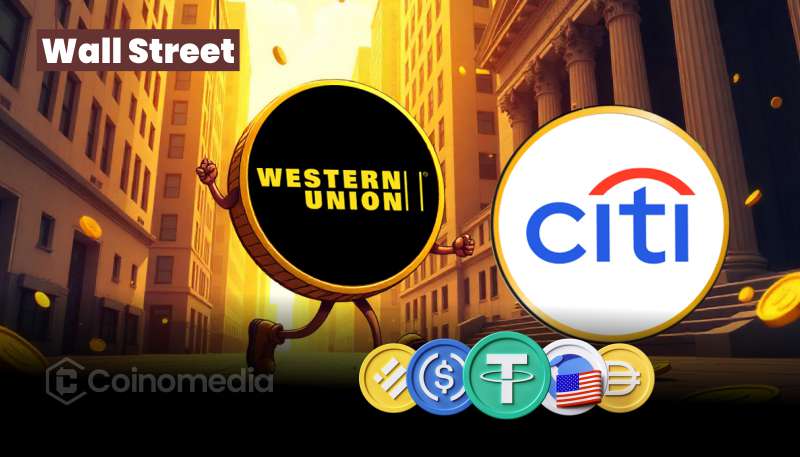Citi & Western Union Lead Wall Street’s Stablecoin Push
Citi partners with Coinbase for onchain payments while Western Union builds a Solana-based network.

- Citi teams up with Coinbase to enable onchain payments.
- Western Union develops stablecoin settlement via Solana.
- Wall Street giants embrace blockchain for faster transactions.
Major Wall Street players are diving deeper into the stablecoin space, signaling a shift in traditional finance. Citi, one of the largest banks in the U.S., has joined forces with Coinbase to offer onchain payment solutions. Meanwhile, Western Union is making headlines by building a stablecoin settlement network on the Solana blockchain. These moves highlight how traditional financial institutions are embracing blockchain for speed, cost-efficiency, and global reach.
Citi Partners Coinbase for Onchain Payments
Citi’s partnership with Coinbase is a bold step into the future of finance. The collaboration focuses on enabling corporate clients to send and receive funds using blockchain-based systems, especially through stablecoins like USDC. This move isn’t just about modernizing money transfers—it’s about leveraging the transparency and efficiency of blockchain. The integration with Coinbase ensures that Citi clients can access trusted digital infrastructure with regulatory backing.
Western Union Embraces Solana for Settlements
While Citi works with Coinbase, Western Union is making waves by developing its own stablecoin settlement system on Solana. Known for its high-speed and low-cost transactions, Solana provides a suitable platform for remittances. Western Union’s goal is to improve cross-border money transfers using stablecoins, reducing the cost and time delays typical of traditional methods. With this initiative, the company positions itself as a pioneer among global remittance providers embracing Web3 solutions.
What This Means for the Financial World
The entry of financial heavyweights like Citi and Western Union into the stablecoin race marks a pivotal moment. It shows that blockchain and digital currencies are no longer just the domain of crypto startups. These developments may drive further institutional interest and accelerate regulatory clarity. As more firms join the trend, stablecoins could soon become a key part of mainstream financial infrastructure.



